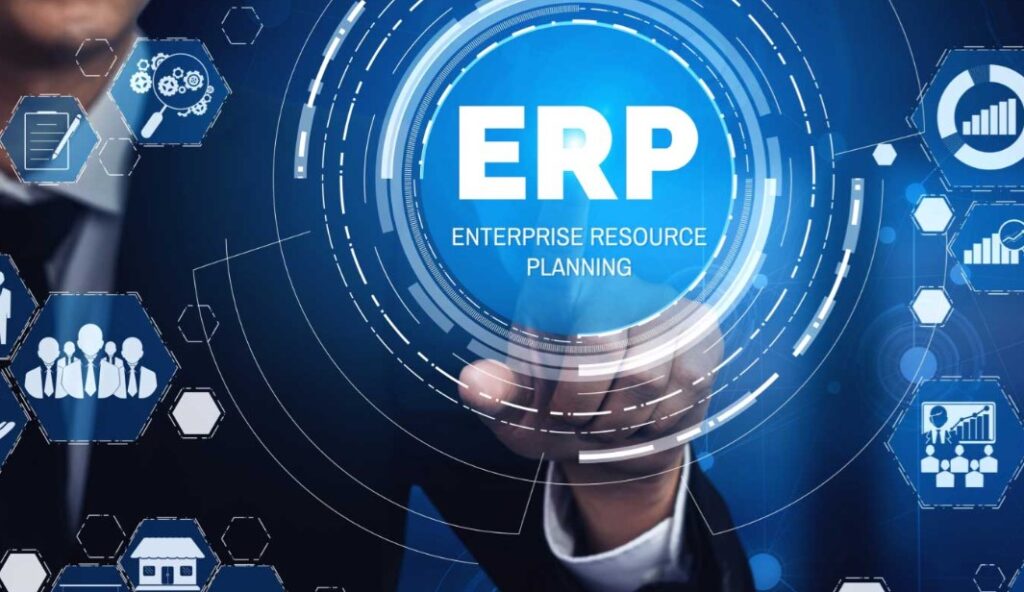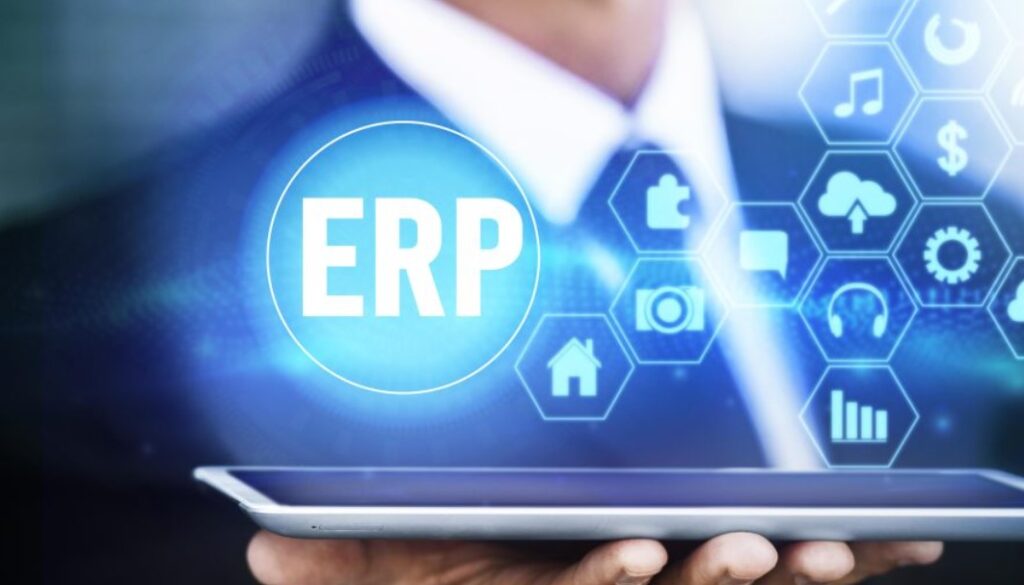Enterprise Resource Planning (ERP) software in the healthcare industry is designed to streamline administrative, financial, and operational processes. From patient management to regulatory compliance and financial tracking, an ERP solution can transform how healthcare providers operate by centralizing data and improving efficiency. This guide provides detailed insights into the top ERP solutions tailored to the healthcare sector, along with real-world use cases, product comparisons, and buying advice.
Key Benefits of ERP Software for Healthcare

Enterprise Resource Planning (ERP) software offers a range of benefits tailored specifically for the healthcare industry, transforming the way healthcare organizations manage their operations. These systems centralize data and automate critical tasks, leading to better efficiency, cost savings, and improved patient care. Below, we’ll dive into the key benefits of ERP systems in healthcare, expanding on how each feature solves specific challenges.
1. Improved Patient Management
One of the most significant advantages of ERP software in healthcare is its ability to integrate Electronic Health Records (EHR) and patient management systems. By unifying patient information—such as demographics, medical history, treatment plans, and billing—ERP ensures that healthcare professionals have access to a complete, accurate, and real-time view of each patient. This leads to:
- Better Patient Care: Doctors and nurses can make more informed decisions quickly, improving patient outcomes. Real-time access to patient data ensures that medical professionals are always updated, avoiding delays in treatment due to missing or outdated records.
- Streamlined Communication: Communication between departments becomes seamless, as patient records are easily accessible by all authorized personnel. This reduces miscommunication and errors during patient handoffs, particularly in larger hospital networks.
- Faster Billing and Invoicing: By automating patient billing processes and integrating insurance claims, ERP systems reduce errors in billing and expedite reimbursements, thus improving the cash flow of healthcare institutions.
2. Streamlined Financial Management
ERP systems for healthcare streamline financial processes such as billing, invoicing, budgeting, and payroll. This automation leads to greater accuracy and fewer manual errors, which is particularly important in a sector as sensitive as healthcare:
- Automated Billing and Invoicing: Many ERP platforms automatically generate invoices, track payments, and manage accounts receivable and payable. This reduces the burden on administrative staff, minimizing human error and speeding up payment processing.
- Budget Management: Hospitals and clinics can manage their budgets more effectively by tracking income and expenses in real time. This allows for more strategic decision-making, ensuring that healthcare providers can allocate resources where they are needed most.
- Regulatory Compliance: Financial regulations in healthcare can be complex. ERP systems ensure that your healthcare organization stays compliant by keeping accurate financial records, tracking transactions, and generating reports for audits.
3. Enhanced Supply Chain Management
The management of medical supplies and equipment is critical for healthcare organizations, and any disruption can have severe consequences. ERP systems enhance supply chain management by offering real-time visibility and control over procurement, inventory, and vendor management:
- Efficient Inventory Management: ERP software provides real-time tracking of medical supplies and equipment, ensuring that hospitals and clinics have the necessary resources available at all times. Automated inventory alerts help avoid shortages, ensuring timely reordering of essential supplies.
- Cost Reduction: By optimizing procurement and vendor management processes, ERP systems help healthcare providers negotiate better deals with suppliers, leading to cost savings.
- Waste Reduction: Efficient supply chain management reduces excess inventory and expiration of medical supplies, thereby minimizing waste.
4. Regulatory Compliance and Data Security
Healthcare providers must adhere to stringent regulations, such as HIPAA (Health Insurance Portability and Accountability Act) in the U.S. ERP systems help maintain compliance by ensuring data integrity and securing patient information:
- Data Security: ERP systems come with built-in security protocols to protect sensitive patient information, including encryption, multi-factor authentication, and audit trails. This helps prevent unauthorized access and data breaches.
- Audit Trails: Every action taken within the system is logged, making it easier to comply with healthcare regulations and pass audits. ERP solutions provide detailed records of who accessed or modified patient information, making compliance with data protection laws easier.
- HIPAA and FDA Compliance: Many ERP systems come pre-configured to comply with specific healthcare regulations, ensuring that healthcare organizations can avoid hefty fines and penalties due to non-compliance.
5. Real-Time Data and Analytics for Decision-Making
ERP systems provide real-time analytics that empower healthcare organizations to make informed decisions based on up-to-date data:
- Operational Efficiency: Real-time data allows healthcare providers to identify inefficiencies in their workflows, whether it’s in patient care, supply management, or staffing. This leads to more proactive decision-making.
- Patient Outcomes: By analyzing patient data, healthcare institutions can identify trends that may impact patient outcomes. This enables them to adjust treatment protocols or allocate resources in ways that improve care.
- Financial Reporting: ERP systems generate financial reports that provide insights into revenue, expenses, and overall financial health, helping healthcare organizations make better financial decisions.
6. Scalability and Integration with Other Systems
ERP systems for healthcare are designed to be scalable and integrative, allowing them to grow alongside the organization and integrate with other systems like Electronic Medical Records (EMRs) or Practice Management Systems:
- Scalability: As healthcare organizations expand or add more facilities, ERP systems can scale to accommodate new data and operational requirements without losing efficiency.
- Interoperability: ERPs can integrate with other healthcare systems such as EMRs, Laboratory Information Systems (LIS), and Radiology Information Systems (RIS), providing a seamless flow of information across departments.
7. Optimized Human Resource Management
ERP software enhances human resource (HR) management in healthcare organizations, ensuring that staffing levels meet patient needs and that administrative tasks like payroll and scheduling are streamlined:
- Efficient Shift Scheduling: ERP systems can automatically generate staff schedules, ensuring optimal coverage across departments. This reduces overstaffing and understaffing issues, improving patient care while controlling labor costs.
- Employee Performance Tracking: Healthcare providers can use ERP systems to track staff performance, identify training needs, and ensure compliance with certifications and continuing education requirementsERP ResearchClarity Ventures.
Implementing an ERP system in the healthcare industry is a strategic decision that yields numerous benefits. From enhancing patient care and improving financial oversight to ensuring regulatory compliance and optimizing supply chain management, ERP systems provide healthcare organizations with the tools they need to operate efficiently and effectively. Whether your organization is a large hospital network or a small clinic, the right ERP solution can make a significant impact on both day-to-day operations and long-term success.
Top ERP Software for Healthcare Industry

Here’s a breakdown of the best ERP software for healthcare organizations. These solutions have proven effective in solving real-world challenges such as patient management, supply chain issues, and financial inefficiencies.
1. NetSuite
NetSuite is a powerful ERP system that offers comprehensive solutions for healthcare providers, from patient management to financial oversight.
- Use Case: Ideal for hospitals and clinics needing a centralized system for managing patients and financial operations.
- Key Features: Integration with EHR, real-time financial tracking, supply chain management, compliance management.
- Pros: Robust reporting tools, seamless integration with other systems, cloud-based for scalability.
- Cons: Requires significant initial training for staff.
- Price: Custom pricing based on the size and needs of the healthcare organization.
2. Infor CloudSuite Healthcare
Infor CloudSuite Healthcare is tailored for hospitals looking for an intuitive, easy-to-use platform that integrates with existing medical systems.
- Use Case: Best suited for large hospitals requiring advanced medical device integration and streamlined staff management.
- Key Features: Supply chain optimization, human resources management, global financial ledger.
- Pros: Extremely user-friendly, scalable, strong support for supply chain management.
- Cons: Limited to organizations operating within a single country.
- Price: Custom pricing.
3. Acumatica

Acumatica provides a flexible, cloud-based ERP solution that allows healthcare facilities to manage complex financial and operational tasks.
- Use Case: Ideal for multi-facility healthcare organizations needing multi-entity support.
- Key Features: Open architecture for easy integration, mobile accessibility, financial and patient data management.
- Pros: Strong interoperability with healthcare systems, mobile-friendly, high scalability.
- Cons: High learning curve, can be expensive.
- Price: Starts at $1,800 per month.
4. Sage Intacct
Sage Intacct focuses on financial management but also provides tools for inventory and patient data management.
- Use Case: Suitable for healthcare providers focused on financial oversight and inventory control.
- Key Features: Cloud-based financial management, revenue cycle management, compliance monitoring.
- Pros: Excellent for managing finances and inventory, highly customizable.
- Cons: Limited scalability for large healthcare facilities.
- Price: Custom pricing available.
5. Microsoft Dynamics 365
Microsoft Dynamics 365 combines CRM and ERP functionalities, offering a complete solution for patient and financial management.
- Use Case: Works well for organizations needing deep integration with other Microsoft tools, such as Office 365 and Power BI.
- Key Features: Financial management, HR operations, patient data tracking, predictive analytics.
- Pros: Integrates with other Microsoft products, user-friendly for staff already familiar with Microsoft software.
- Cons: Requires extensive training for complex operations.
- Price: Starting at $70 per user/month.
Product Comparison Table

| Product | Use Case | Pros | Cons | Price |
|---|---|---|---|---|
| NetSuite | Centralized management for hospitals | Strong reporting, cloud scalability | Initial training required | Custom pricing |
| Infor CloudSuite | Large hospitals with complex supply chains | User-friendly, seamless integration | Limited international support | Custom pricing |
| Acumatica | Multi-entity healthcare organizations | Open architecture, mobile-friendly | High learning curve | $1,800/month |
| Sage Intacct | Financial and inventory management | Customizable, compliance monitoring | Limited scalability | Custom pricing |
| Microsoft Dynamics | Organizations using Microsoft ecosystem | Integrates with Office 365, user-friendly | Requires extensive training for advanced users | $70/user/month |
How to Buy ERP Software for Healthcare

When purchasing ERP software for healthcare, the process requires careful evaluation to ensure the system meets your organization’s unique needs while remaining compliant with healthcare regulations. Here’s a step-by-step guide to buying ERP software:
1. Assess Your Healthcare Organization’s Needs
Start by identifying the specific challenges you face. These could range from inefficient patient management, complex billing processes, regulatory compliance issues, or supply chain inefficiencies. Create a list of key functions your ERP system must perform, such as Electronic Health Record (EHR) integration, financial tracking, and compliance with regulations like HIPAA.
2. Research ERP Vendors
Once your needs are clear, research ERP vendors that specialize in healthcare. Look for providers with proven expertise in your industry. Some top vendors for healthcare ERP include NetSuite, Infor CloudSuite Healthcare, Acumatica, Sage Intacct, and Microsoft Dynamics 365.. Review case studies and testimonials to see how the ERP systems have been deployed in similar healthcare settings.
3. Request Demos and Trials
Most ERP vendors offer product demos or free trials. Engage with these to assess how user-friendly the software is, its integration capabilities with existing systems, and whether it meets your operational needs. Demos help your staff understand how the system works in practice.
4. Evaluate Compliance Features
Ensure the ERP system complies with healthcare regulations, such as HIPAA for patient privacy and security, FDA for medical devices, and other local or global regulations. The system should provide audit trails, data encryption, and multi-factor authentication to protect patient data.
5. Compare Pricing and Scalability
Discuss pricing models with vendors, which often vary based on the number of users and required features. Consider both upfront and long-term costs, ensuring the ERP system is scalable as your organization grows. Many vendors offer custom pricing, so negotiate based on your organization’s size and specific needs.
When buying ERP software for healthcare, assess your organization’s specific needs, research industry-relevant vendors, request demos, and ensure regulatory compliance. Evaluate the system’s scalability and pricing, keeping long-term growth in mind. Choosing the right ERP can streamline operations, enhance patient care, and ensure regulatory adherence efficiently.
Frequently Asked Questions (FAQs)
- What is ERP software for healthcare? ERP software for healthcare integrates administrative, financial, and clinical functions into one system to streamline operations and improve patient care.
- Why do healthcare organizations need ERP? ERP helps centralize data, ensuring more accurate billing, better patient management, and adherence to industry regulations like HIPAA.
- How much does healthcare ERP software cost? Pricing varies widely, from $70 per user/month to custom pricing based on your organization’s needs.
- Is ERP software customizable? Yes, most healthcare ERP solutions offer customizable features to meet specific organizational needs, from patient data management to financial tracking.
- Can ERP software improve compliance? Absolutely, ERP systems help maintain compliance with industry regulations, reducing the risk of fines and legal complications.
By selecting the right ERP software, healthcare organizations can ensure smoother operations, better patient care, and compliance with industry regulations. Make sure to request demos and thoroughly evaluate each product to find the best fit for your organization.
